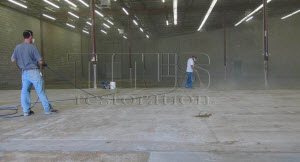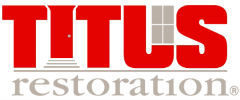 As an owner of a concrete floor that is going to receive densifier, here are some advantages and disadvantages of choosing a densifier product that is best suited for your needs and expectations. Often times, a floor’s finish will call for a generic specification of: “use either a lithium silicate, sodium silicate, potassium silicate, or a siliconate”. This is then specified to be applied to the cream of the concrete floor (oftentimes without diamond grinding) in order to achieve a gloss meter reading of 60 at a 60 degree reflectivity.
As an owner of a concrete floor that is going to receive densifier, here are some advantages and disadvantages of choosing a densifier product that is best suited for your needs and expectations. Often times, a floor’s finish will call for a generic specification of: “use either a lithium silicate, sodium silicate, potassium silicate, or a siliconate”. This is then specified to be applied to the cream of the concrete floor (oftentimes without diamond grinding) in order to achieve a gloss meter reading of 60 at a 60 degree reflectivity.
The Short Cut (not recommended)
The contractor performing the work is most likely going to choose the chemical that is cheapest with out even thinking twice. The cheapest product is the one with the largest molecular structure and the highest pH. This will achieve the specified chemical shine of “waterglass” on the floor. The contractor rinses enough of the excess silicate off so the surface does not turn white and uses a high speed burnishing pad to pop a shine on the chemically enhanced surface. Sometimes, the contractors will not even rinse the silicate off.
But, what will happen over time? The large molecule that offered the impressive, initial water resistance and shine did not have time to penetrate very deeply if at all. Because it doesn’t penetrate, it doesn’t react with the free lime, and because it is unreacted it is water soluble. Overtime, the auto-scrubbers dull the floor as the water soluble, unreacted sodium silicate or unreacted potassium silicates are washed off the surface of the floor. The chemical shine is gone, and the customers…how do they feel? Is there an alternative to this shortcut and short-change method?
Lithium Silicate Concrete Densifier (recommended)
Titus Restoration Services, Inc. uses Titus Lithium Silicate Densifier prior to concrete polishing. Titus has investigated sodium silicates, potassium silicates, and siliconates prior branding this lithium silicate for use in its concrete floor sealing and polishing business.
Regardless of the claims of manufacturers, Titus can tell you from extensive experience that unreacted sodium and potassium silicates will turn white on the floor. We have never had a problem with lithium silicate turning a floor white. The white floor causes efflorescence due to high pH and salts. In fact, lithium silicate can be used to stop efflorescence and to cure wet and sweating floors.
Many of the “big box” stores have seen a chemical shine created by over application of sodium and potassium silicates only to see that the shine has quickly dulled as the water soluble sodium and potassium silicate, commonly called “waterglass”, is washed away by auto scrubbers during routine floor maintenance.
Titus has also selected our Titus Stain Guard as it is enhanced with a silane additive to help prevent moisture penetration into the slab after densification. In addition to the silane additive, Titus Stain Guard (another lithium silicate) has more than double the amount of reactive solids as other silicates…including most of the competition’s lithium silicates. The additional reactive solids in Titus’ Stain Guard are easily evident, even by an untrained observer.
Many businesses are replacing old carpet and vinyl tile floors with polished concrete. Titus Restoration Services, Inc. offers turnkey solutions for concrete floor restoration – from vinyl tile removal, mastic removal, concrete grinding, and decorative polished concrete. We at Titus have found a substantial difference is silicates…even in lithium silicates. We highly recommend a lithium silicate with a silane additive with 20% or more reactive solids if you are using it as a concrete Densifier.
A Chemical Shine or Truly Polished Concrete?
If you are wanting the look of polished concrete…and you want the shine to last…then it has to be polished concrete…not chemically enhanced concrete that has had just a few steps of polishing diamonds and a burnisher ran over it to pop a shine. Are both options viable – yes. You just need to be educated on which is going to suit your needs best.
Polishing concrete uses industrial diamonds bonded in a matrix of metal or resin. It is a process of using smaller and smaller diamonds until the concrete develops a shine. Diamonds steps cannot be skipped and the proper chemicals must be used and not over applied. After the concrete begins to shine, the next step is hardening the surface of the concrete with a silicate densifier. Following that, there is the actual “process” used to polish the concrete. Titus Restoration uses a “wet” grinding process all the way to 3000 grit for grey concrete.
To get the best concrete densifer selection and the best company to polish your concrete floors, contact Titus Restoration today for a free estimate.
